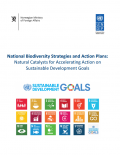
In 2010, the Conference of Parties of the Convention on Biological Diversity (CBD) agreed to an ambitious set of 20 targets, called the Aichi Biodiversity Targets, as part of their commitment to the CBD Strategic Plan. One of the Targets (Target 17) called for each country to revise its National Biodiversity Strategies and Action Plan (NBSAP) in accordance with the Aichi Biodiversity Targets. From 2010 to November 2016, virtually all countries have revised, or are currently completing the revision of, their NBSAP. As of November 2016, 123 countries (76 of them eligible for official development assistance) have submitted post-2010 NBSAPs.
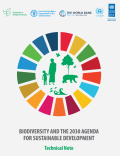
The Strategic Plan for Biodiversity 2011-2020 and its Aichi Biodiversity Targets adopted by the Convention on Biological Diversity has been recognised as setting the global framework for priority actions on biodiversity. The 2030 Agenda is consistent with other existing international commitments, including the Strategic Plan for Biodiversity. The SDGs and the Strategic Plan are mutually supportive and reinforcing, and therefore the implementation of one contributes to the achievement of the other.
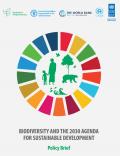
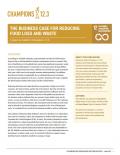
According to available estimates, approximately one-third of all food produced in the world intended for human consumption is lost or wasted. This level of inefficiency in the global food system has significant economic, social, and environmental impacts. It amounts to economic losses of $940 billion per year. It means that more than a billion tonnes of food never gets consumed each year, while one in nine people remains undernourished. In addition, food loss and waste are responsible for an estimated 8 percent of annual greenhouse gas emissions; if it were a country, food loss and waste would be the third-largest emitter after China and the United States.
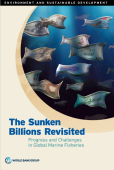
Global marine fisheries are in crisis. The proportion of fisheries that are fully fished, overfished, depleted, or recovering from overfishing increased from just over 60 percent in the mid-1970s to about 75 percent in 2005 and to almost 90 percent in 2013. Biological overfishing has led to economic overfishing which creates economic losses. To quantify the value of this economic loss, in 2009 the World Bank and the Food and Agriculture Organization of the UN (FAO) published a study on the economic performance of global fisheries, The Sunken Billions: The Economic Justification for Fisheries Reform.
